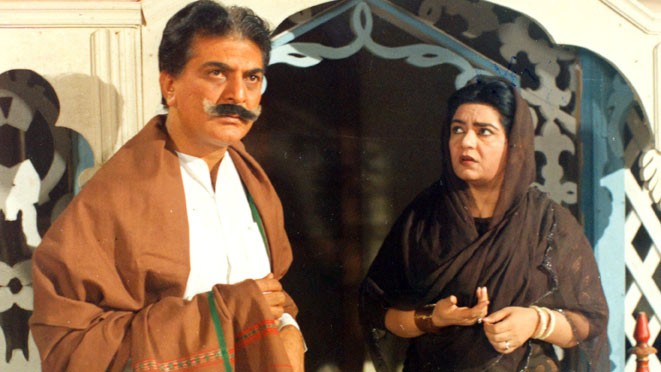
Abid Ali had the resource and reserve to play roles across the ethnic spectrum that ensured his popularity and longevity as an actor

Abid Ali was a fine actor. He did not disappoint all the years he worked -- particularly for television.
Television actors usually play long innings as performers. This is quite unlike films, where actors ride a more rickety vehicle. In films success is contingent upon many factors and one’s ability cannot always be the final tipping point. In television, many actors have been around for decades. They have been consistent in their output.
Abid Ali was known for his consistency. He performed outstandingly at times and was very much part of the role. It was rare, very rare, for his work to fall below a certain mark. His directors and in the case of television, producers, knew he would deliver no matter what the role entailed.
In the beginning, television only had presenters, while film had stars. It was left for stage to actually hone actors. But with the passage of time and the pervasiveness of television, the small screen started to dictate the rules of what acting was supposed to be.
The technological developments also worked in favour of TV. The limitations of TV and video were not matched by the possibilities inherent in celluloid. But, now, the video has started to monopolise the screen -- big or small. The size of the screen, too, has been made big or adjustable, and the viewer is no longer a passive spectator at the mercy of the action on screen. He can become an active participant with the manipulation of the gadgetry, totally under-control, in the comfort of a lounge or bedroom.
Abid Ali hailed from Quetta but in terms of his gestures and accent, he did not have the distinctive mark of actors coming from that region. Many actors from Khyber Pakhtunkhwa have gone on to the mainstream. They have distinguished themselves without their way of speaking becoming a disadvantage.
Abid Ali was versatile. He had no limitations. He could play the role of an average Pakistani that straddled the area of the four provinces. He was a patent performer, a Pakistani character, not a Baloch or a Pathan. That ensured his popularity and also his longevity. He could by force of his expression, sound and image make the character he was playing -- convincing and credible.
When he acted in Jhok Siyal, it was generally said that it was the first imprint of the film on the small screen. Before that TV plays had been domestic affairs, revolving round issues of the family and individual treated in a smaller than life manner. Jhok Siyal was in broad gestures. It was about feudalism and the culture it entails -- and all this has been so typecast to have a formulaic tone about it. It is a favourite theme and topic of the big screen in which feudals lord over with excesses and the rest, on the receiving end, are open to exploitation. It is a black-and-white affair, where gray is looked down upon. In television, the same scale was attempted but with some shades of gray to distinguish from the binaries of the Pakistani cinema. It was a success.
Then came Waaris, which was more of the same, actually a few notches over and above. It was certified that the feudal culture in its broad sweeps will be the purveyor of the small screen, and it will not be limited to the domestic or the urban middle-classes. In this too Abid Ali distinguished himself. But he did not limit himself to it. He had the resource to outgrow it and be versatile in racking a number of roles that have been character types in the society at large.
He went on to successfully perform roles of urban characters. Then, as he grew older, it was not the role of the young, handsome, swashbuckling type that he was tied up with. But, instead, he eased with familiar grace into middle age and, with the passage of time, into older age bracket. Not for a moment was it evident that he was not comfortable in his skin.
This was the real reason for his longevity. He had the resource and the reserve to play roles across the spectrum -- from the hero to the evil type, from a romantic spreading his seeds to the tentativeness of middle age, and the wise but static docility of old age.
He also acted in films. But the Pakistani cinema has always been limited and has fewer opportunities for those who want to spread their net far and wide.
This is one reason why television played a role that was beyond its prescribed place. The social and cultural issues which cinema failed to tackle or took on in a lukewarm way were taken head on by television. It took the place of performing arts, which is more than song and dance.
He also introduced natural acting to the definition of acting. It is generally assumed that loud gestures and grand sweeps make up great acting. But, it is the nuance and the gesture and the half-muttered word have greater potential in the context of television’s small screen. Abid Ali did just that and fulfilled the requirements of quality performance on the small screen, which was much-lauded, not only here but across the border in India as well.